Over 5,000 People Have Been Killed And Entire Neighborhoods Swept To Sea In Libya’s Most Disastrous Flood
The staggering death toll is expected to rise as search and rescue operations continue.
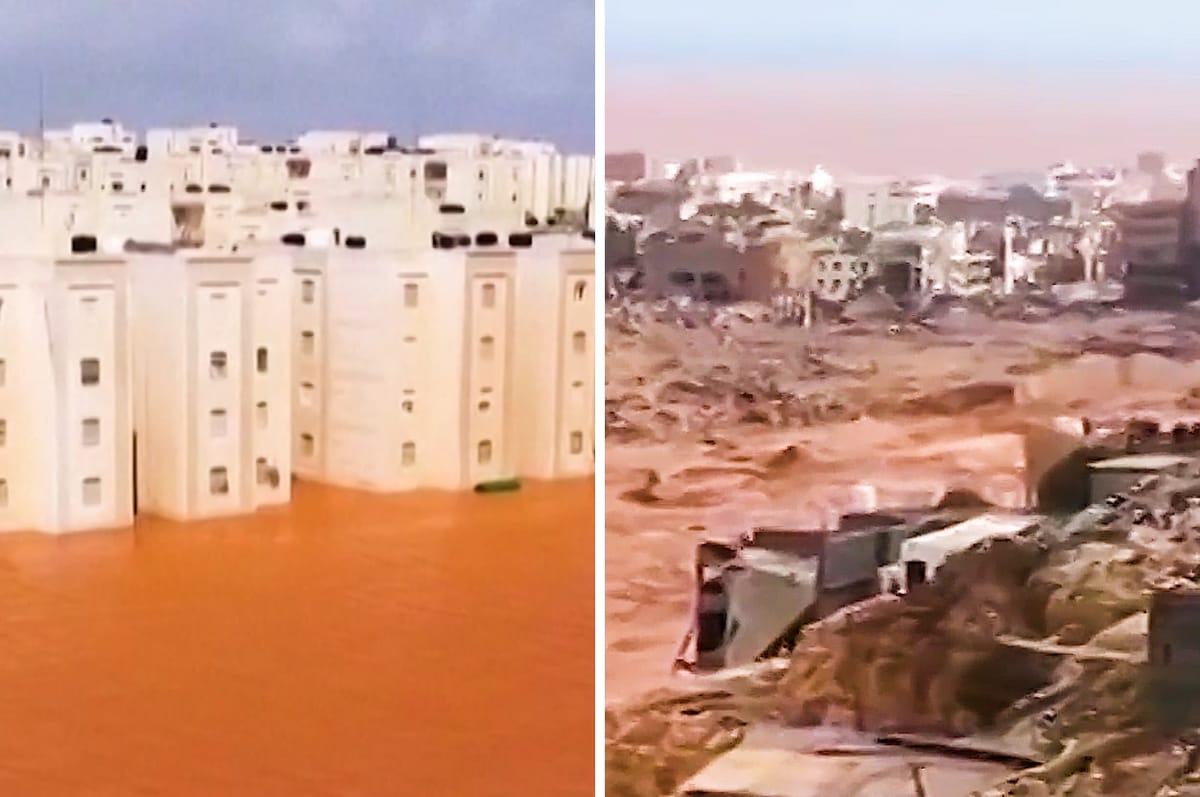
Catastrophic flooding has ravaged Libya and killed at least 5,000 people following torrential downpour caused by Storm Daniel, which struck the country’s East coast on Sunday, Sep. 10.
The staggering death toll, which is expected to rise as search and rescue operations continue, resulted from the collapse of two dams and four bridges, according to the BBC.
Most victims either died from drowning or collapsed structures as ruthless currents engulfed neighborhoods in whole and swept residents into the Mediterranean Sea.
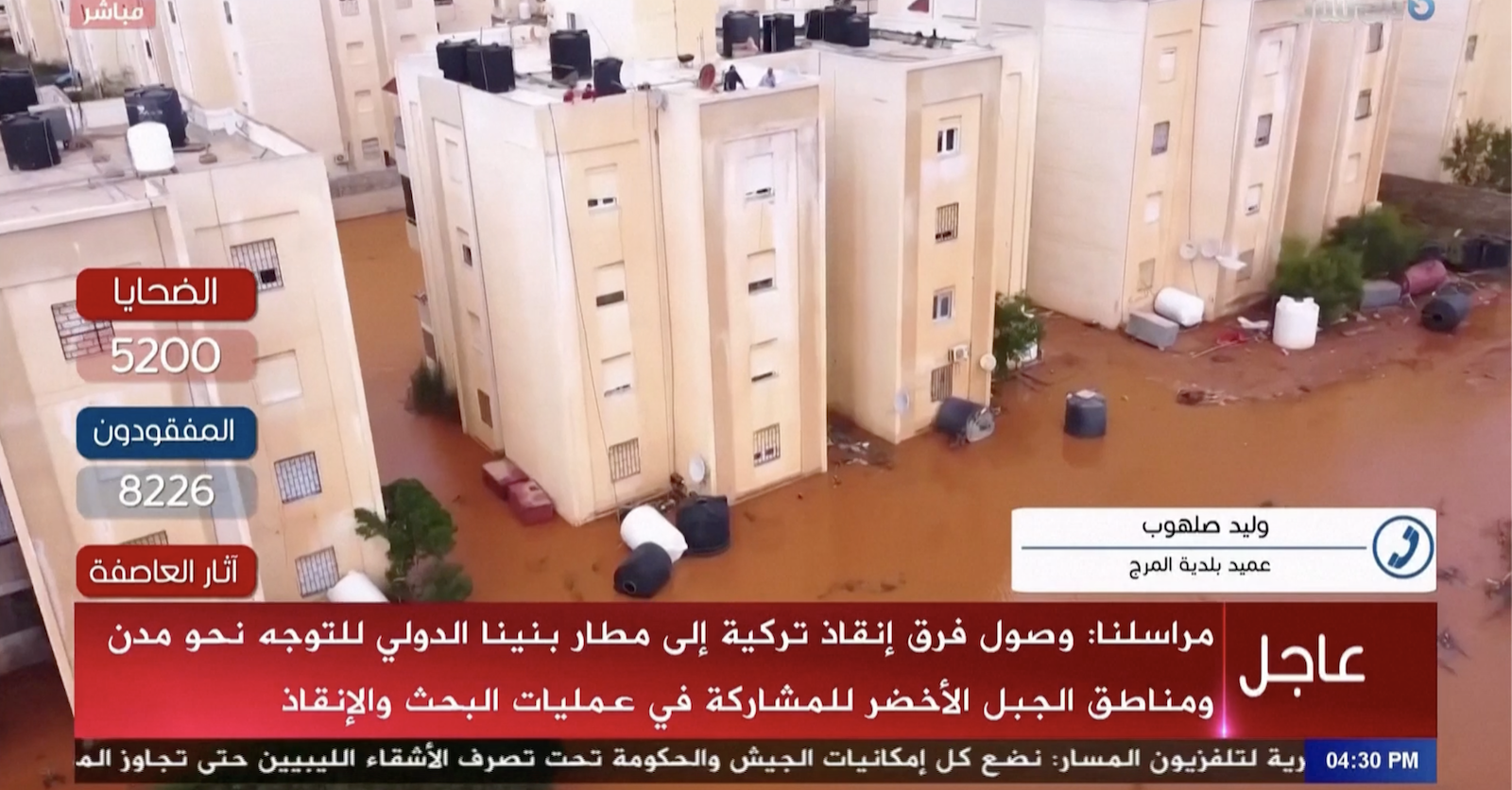
Meanwhile, an estimated 10,000 Libyans are currently missing, according to The International Red Cross.
Neighboring countries such as Turkey and the United Arab Emirates have dispatched rescue teams to assist Libya’s affected zones.
“Libya was not prepared for a catastrophe like that. It has not witnessed that level of catastrophe before. We are admitting there were shortcomings even though this is the first time we face that level of catastrophe,” the head of Libya’s Emergency and Ambulance Authority told local media.
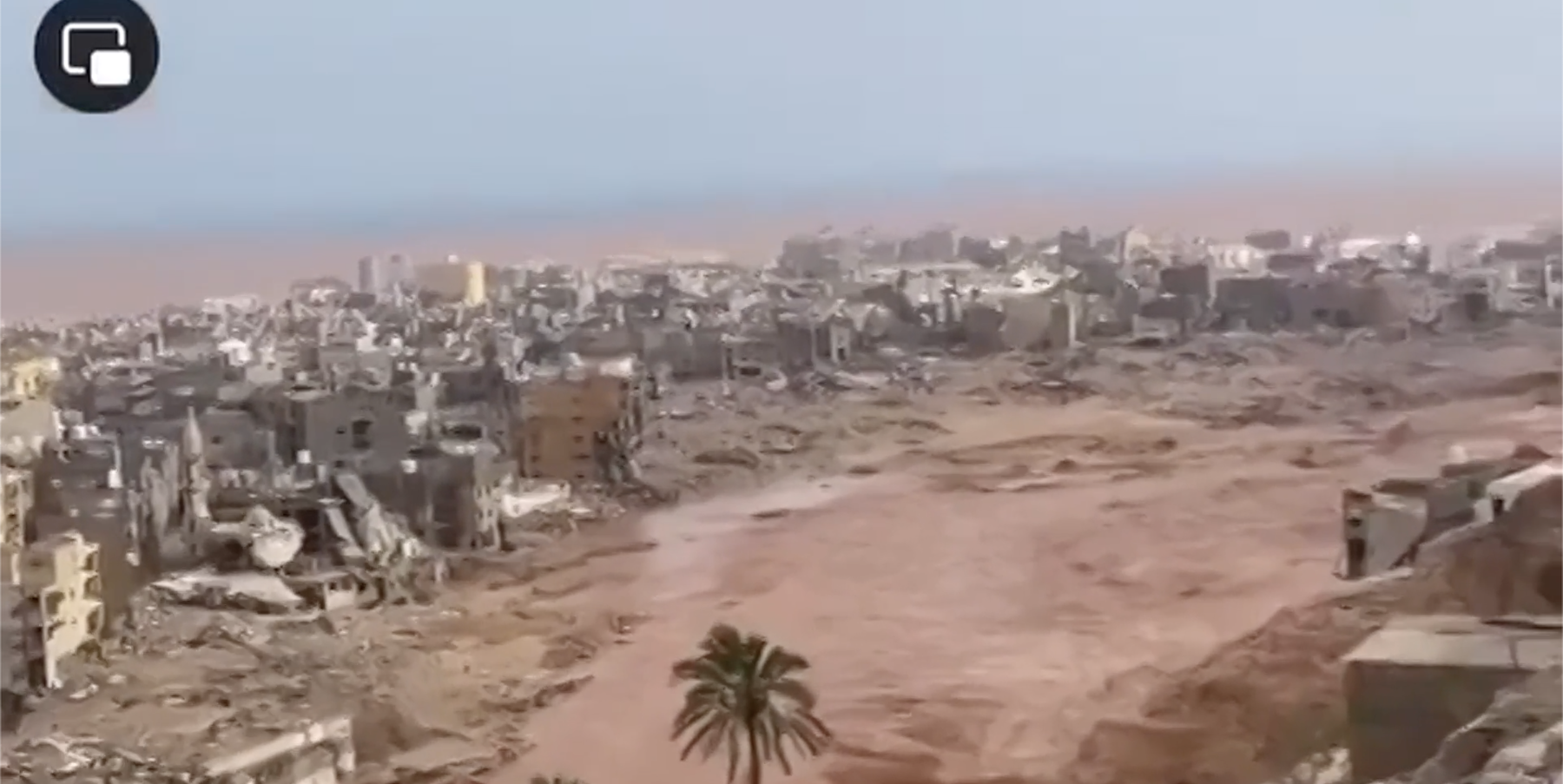
As a response to the crisis, a state of extreme emergency has been declared, leading to school and store closures and the imposition of a curfew.
The city of Derna, once taken over by Islamic extremists during the country’s decade-long conflict, accounted for the highest number of casualties, while Benghazi, the nation’s second-largest city, has also been affected.
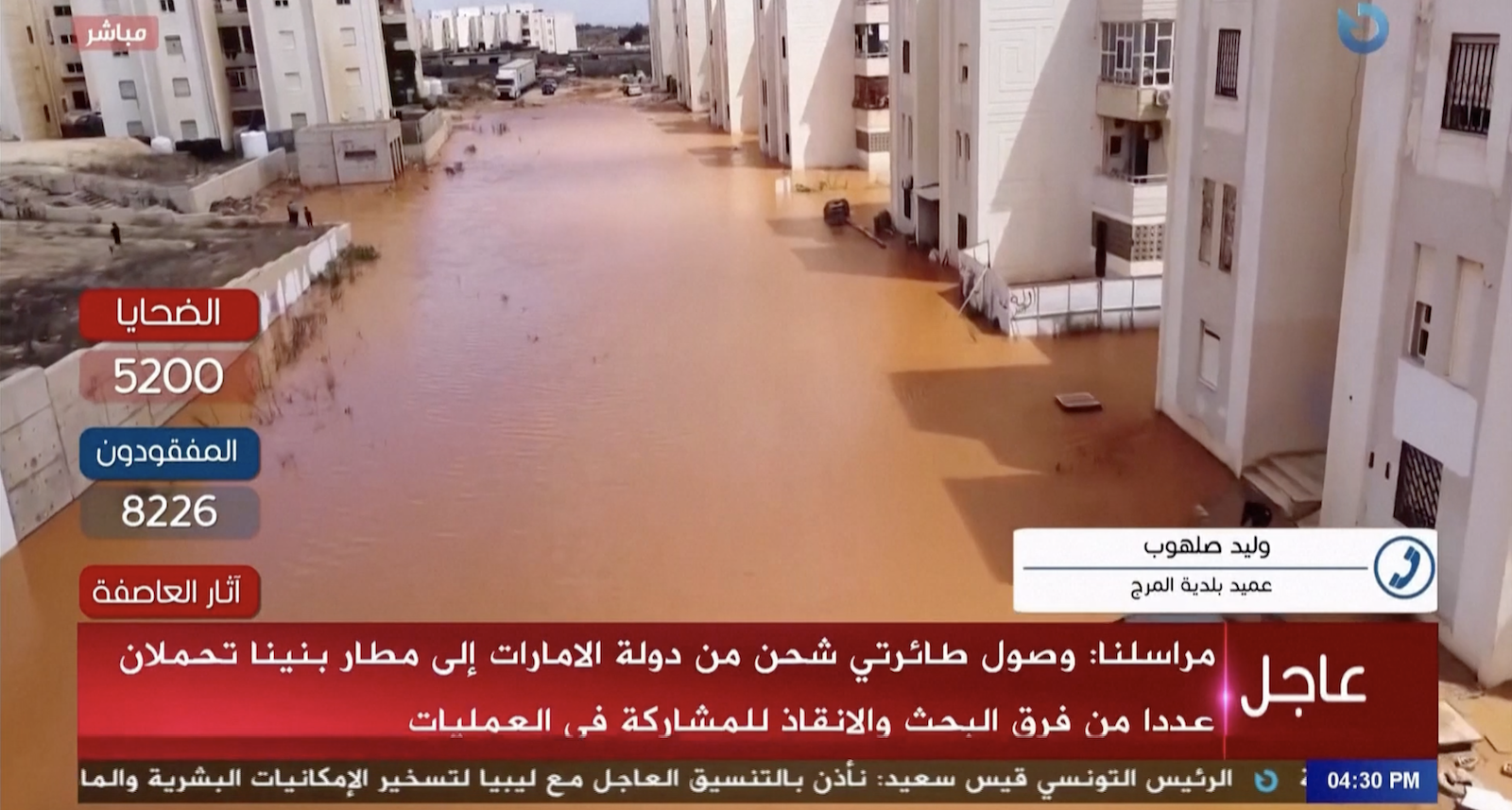
“I returned from Derna. It is very disastrous. Bodies are lying everywhere — in the sea, in the valleys, under the buildings,” a member of the administration’s emergency committee told Reuters. “I am not exaggerating when I say that 25% of the city has disappeared. Many, many buildings have collapsed.”
Analysts say that political division, fragile infrastructure, economic turbulence and environmental degradation have exacerbated the crisis and complicated salvage efforts.
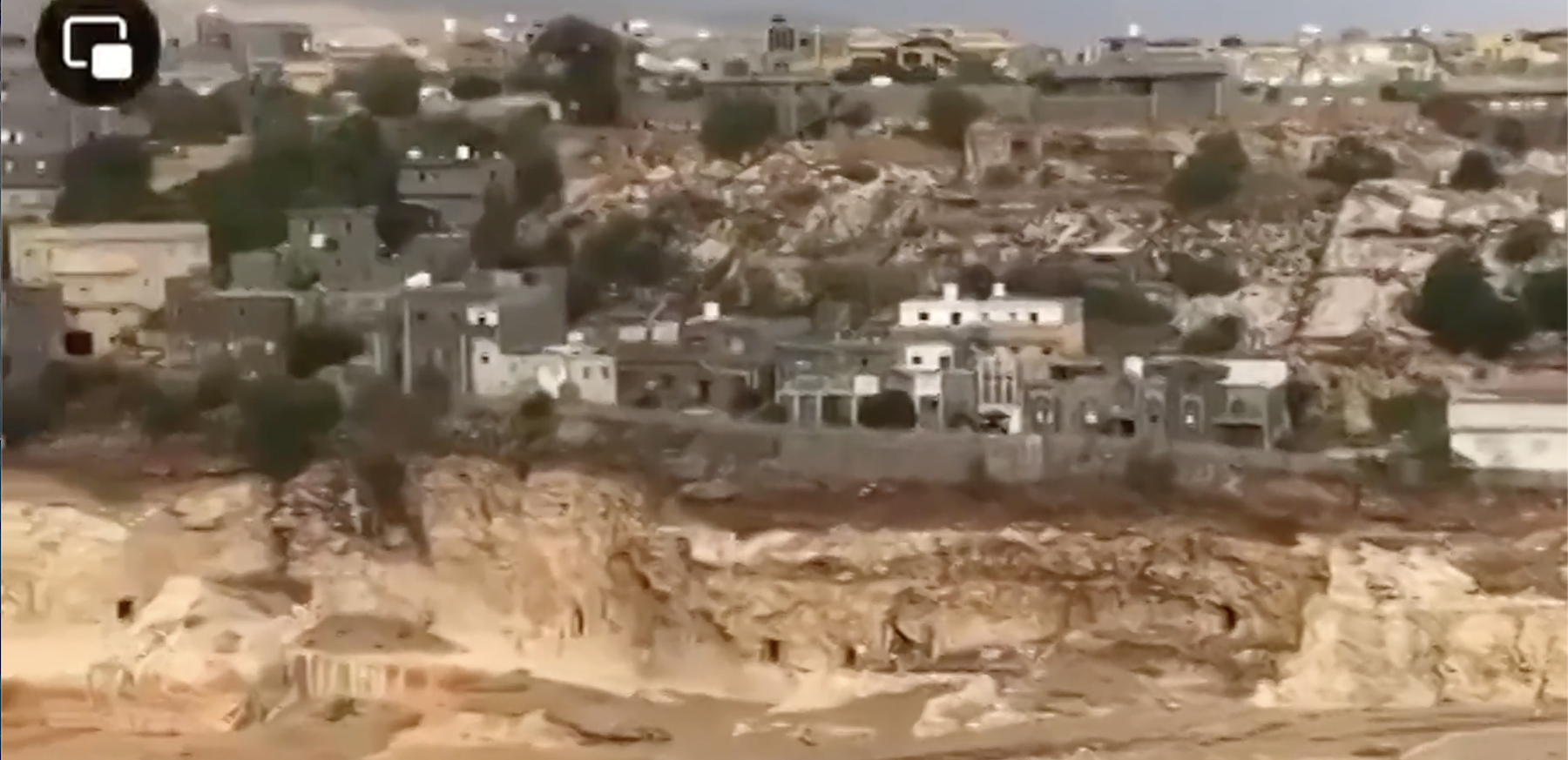
Libya, inhabited by six million, has remained politically split into rivaling factions since the 2011 uprising supported by NATO, thus complicating rescue efforts.
The prime minister of the internationally recognized government in Tripoli has declared three days of national mourning, even though the leadership does not control Eastern Libya.




